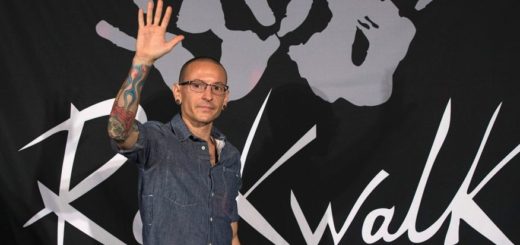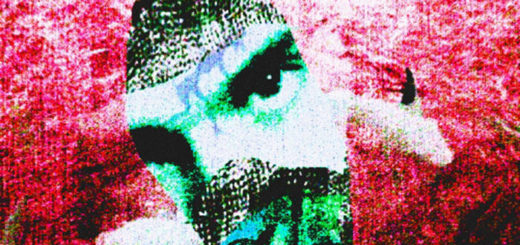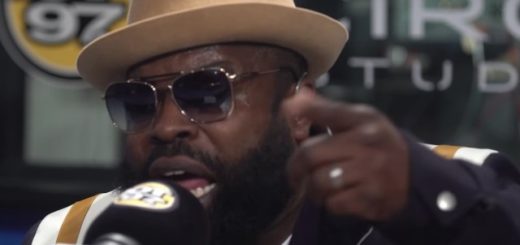Interview: Keenan The First
Keenan The First is a versatile rapper and R&B artist, emphasizing real life scenarios and the hustle as an independent creator. We discussed his years on the rise and current release #THEBLACKBIRDSINGLES, which can now be found on SoundCloud.
Nikki Reifler: For starters, how has your day been?
Keenan The First: Man, today was pretty wild. I shot my first BuzzFeed video.
NR: Oh, really!? That’s amazing.
KTF: I went to work first and then shot that video, then went back to work, and now I’m going to rehearsal for this play I’m also in, been a pretty wild day.
NR: You do a lot of different things including BTS videos. You only have one short one up now, but what is your perspective on showing the whole development process and getting people to see your work ethic?
KTF: I was actually really inspired by this interview that happened with Macklemore and it happened while he was shooting the “Thrift Shop” video. It was pretty insane to see that before this video hit a billion views someone was trying to figure out who this guy was, what he was all about, and figure out what his lifestyle was like. At that time, he was very, very independent, I just found it fascinating that this dude shot a video that reached a billion views, but he also drove the U-Haul, and [helped] out with the set, and [thought] about all these factors that an artist who is signed doesn’t really have to think about. I’ve made more advances in my career and I haven’t been signed, and it’s become less and less of a goal for me. Even if it was a goal, it would be at the bottom of the things I want to do. I’ve kind of pivoted into this direction where if I am going to be an independent artist and I am going to do a lot of these things myself, I am going to need to ask for a lot of help. I think if people really knew what was going into an independent career, musically, they would be a lot more willing to give a little more. Whether it’s time, money, or resources, I just want to open up that door and give people that experience of an independent artist’s career and give them a full story when they are deciding how to contribute.
NR: You have a really strong body of work, but for people that don’t know your music, what would you like people to know about what you represent?
KTF: I really enjoy my own versatility, I like that I sing and I rap. I like the fact that I go back and forth between R&B and hip-hop and sometimes do stripped down acoustic stuff. I would want someone who doesn’t know me, come into my music and say “Wow, there’s something for everybody here!” If I want to be at a party there’s music I can listen to, if I want to be alone and drive on the PCH, there’s music for that. If I want to serenade my girlfriend, or boyfriend, or whatever, I have music for that. You can go to my music for a lot of different things instead of just to turn up.
NR: How would you comment on yourself, as an activist who is documenting the status of America, not just from your own perspective?
KTF: I think it’s a lot easier to be fearless when you’re black or when you’re underrepresented because the downside to being silent is way worse than the downside of being vocal. I went to college for English Literature, and I’ve done a lot of public speaking, and I’ve done a lot trying to learn the English language the best I could to be a real prominent voice. Music has been the most efficient way for me to be a voice, and I embrace that. I think that I have a gift of speaking and using words, and I think people who have those gifts hold the responsibility to be active. Because I’m black, because I’m in America, because I’m a minority, I can sympathize and empathize with other minority groups or other underrepresented people. I usually use my platform to speak from a black perspective first, that’s just more my experience. I’m also always trying to collaborate with people about making our society better and moving ourselves forward, and being more progressive and being a place where everyone can exist equally.
NR: On your song “Full Attention” you have a lyric where you say, “this music thing is a gift”. Would you say that you’ve always been destined to use music as your gateway to communicate your ideas?
KTF: I was a football player for a majority of my life. My dad is a producer, he’s been making music since I can remember. My older brother is a musician, my younger brother is a rapper, I have an uncle who is a rapper, my dad’s dad is a trumpet player—there’s been a lot of musical influence in my life present as a child. I remember growing up and not liking music. When you make music, you listen to it repeatedly over and over again. Being in a household where someone makes music is just literally listening to the same thing a million times. My experience in music was like “I don’t know if I’m really into that.” Football took over more of my interests, and that’s what eventually did get me to college, but when I started getting injured and I [had to] really think about what [I’m] going to do if football doesn’t work out. I had always been making music on the side, in the off seasons. It wasn’t until I left college that I thought, “What are my skills?” I’ve been writing, I’d been doing journalism, I’ve been making music, but I wasn’t sure if music was the right thing. Music has given me a new sense of fulfillment that reinforces it is a gift that I am called to do. But there was early resistance, for sure.
NR: In reading about your song “Paralegal,” you had a mentor who said, “You can’t be halfway out the door,” for arts. What was your push that decided this is your time for music?
KTF: I think it was a lot of failure, honestly, and that’s in the best sense possible. I think failure is the greatest teacher, it forces you to react and respond. I moved to LA because my parents lived here and I had just finished college. I came out here and I was going to use my English degree to get a writing job and make music, that way I can be fully efficient. Everybody’s trying to be a writer here, [in] some capacity. That was so competitive upfront that I didn’t have time to compete for a job because I needed money right away. I started working jobs that weren’t fulfilling me and becoming obstacles to making music. My train of thought was: “How do I get enough money to get comfortable to make music?” When I talked to my mentor, Dwayne Colbert, he was like, “You need to rethink the way you’re thinking. If you’re creating money to be an obstacle for your music, then you need to reframe how you’re thinking.” Music can always be happening, you can always be writing, doing shitty recordings, creating something in the meantime, so when the opportunity arises, you can fully utilize those opportunities. If people see you working and you’re always talking about it, and they see you doing it, that’s when you manifest more opportunities for yourself.
NR: Right now, you are in the process of releasing #THEBLACKBIRDSINGLES. How would you describe this project?
KTF: It’s a collection of music, I hesitate to call it an album. It’s more so a collection of music between October of last year and now. I have gotten into a partnership with The Abstract Recording Studios in Glendale. This is the first time I’ve had a setup like this in a studio, and I’m able to create things as freely as I’m able to create. If you notice on the art, the black bird’s wings are not both in the same direction. It is a blackbird flying in a white world, with one of the wings working for it and the other is working against it. That is the predicament I see of being black in America. These songs don’t necessarily go to that depth, but that is the landscape my mind has been working on within the last six months. “Repoman” is that song, I’m trying to go forward with my career in music, but I’m also not making as much money by doing that, and so I lose my car. If you fully go after what you want, you’re going to lose some things that are going to help you go forward, working for and against yourself.
NR: On #THEBLACKBIRDSINGLES, “How It Goes” had a recent video come out depicting a monotonous relationship. Is it also about your daily struggle?
KTF: Even more so on “How It Goes,” it’s about my relationship with my girlfriend. We’ve been dating for nine years, since I was in high school, I’m 25 now, we’ve been dating since I was 16. It’s been mostly long distance, I’m a 25-year-old guy who has been dating a woman for nine years and I can’t relate to any of my friends who are my age. I’m giving relationship advice to friends my age from what is typically a married man. Being in that routine, there are some things that I can count on all the time, which are so great. What I originally intended for the song, is that there are some things [that] are going to suck as a routine, and there are some things that because they are a routine and you can count on them they can make you happy. “How It Goes” can be a double-edged phrase, and goes with the same context of things working for and against you at the same exact time.
NR: Along with the cover art of #THEBLACKBIRDSINGLES, how in-depth do you plan your artwork for the singles?
KTF: The single artwork is more jokes than anything. I know I’m going to repackage them for Spotify and iTunes. SoundCloud is the free platform, it’s a way of using that platform as a joke where I can use weird symbols and logos and things, but they all have a subtle parallel to what each song is about.
NR: In the video for “How It Goes,” is there a level of a character to you or is it representative of you?
KTF: No, I think that is a character for sure. Not everything is 100% how I am. Joel Jay Blacker played a big role in that video, he shot and directed, and also came up with the concept. I came to him saying we need to do a weird video that is also funny that will get people to watch. I didn’t want to do a video where I was just rapping straight at the camera verbatim, it’s fiction.
NR: One last question, what is the first album you bought?
KTF: Wow, I think it was GET RICH OR DIE TRYIN’ by 50 Cent. My family is very religious, so my dad made Christian music, Christian hip hop, and R&B. It was forbidden for us to listen to secular music. It wasn’t until I was 12 or 13 that I started listening to the radio and I started getting into music outside what I had heard before. Eminem launched me into my 50 Cent phase. When 50 Cent was the first rapper I saw in a movie and dropping music, GET RICH OR DIE TRYIN’ was a big moment for me.



